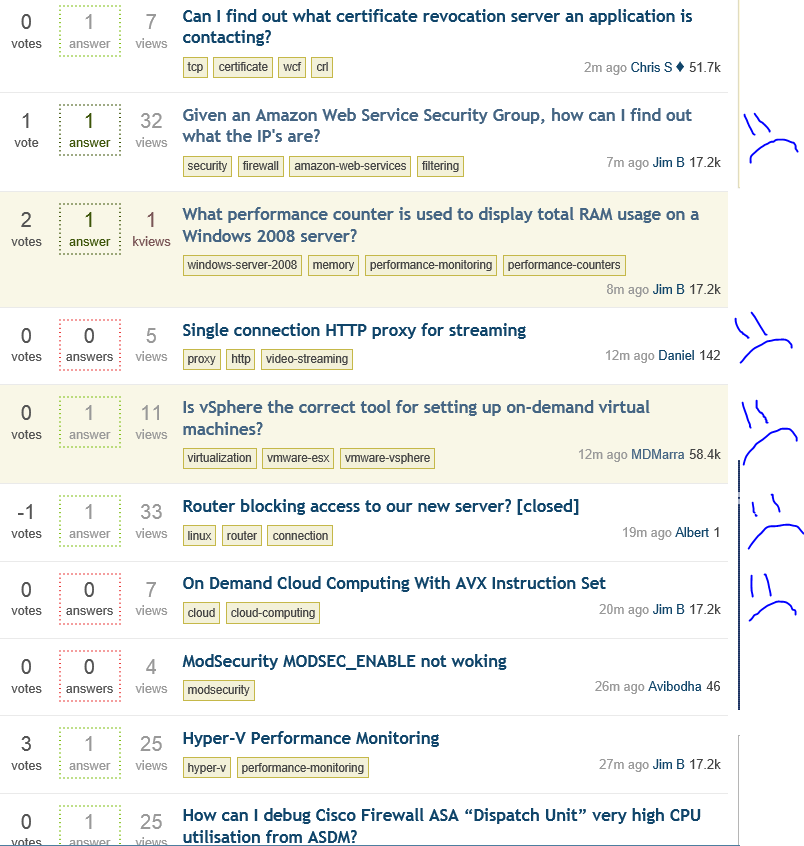I thought I'd chime in my with 2c here because I am a programmer, not a network admin, and am probably one of those people you talk about that are not really wanted here.
I don't have a problem with that, but I wanted to let you know that your site doesn't communicate that fact very well, and thought I'd share my experience.
First off, I'm familiar with the SE network, so the very first thing I do when I go to a new SE site is read the FAQ. (Or at very least, read the top editable section of the FAQ.)
At the very top of your FAQ you say
Server Fault is for Information Technology Professionals needing expert answers related to managing computer systems in a professional capacity.
Now I consider myself an IT professional, so when I need help managing my computer system in a professional capacity, I come here to post my question. But to me, it seems like what you really mean to say here is
Server Fault is for Professional System/Network Administrators to get expert answers from other system/network admins related to managing their computer systems in a professional capacity.
(Sorry, I don't know if there's a major difference between system administrators, or network administrators. I'm more familiar with the term Network Administrator, although it seems like you guys prefer to use the term System Administrators. To me, sysadmins are just people who manages any system, not necessarily a computer/network system.)
The other big problem I see is how your site is described.
For example, I always have a horrible time remembering when to ask here and when to ask on Super User, so I usually click on the Ask Question button to see what it says in the How to Ask box:
Is your question about professional server, networking, or related infrastructure administration?
That doesn't say anything at all to hint that you only want questions from professional System/Network admins. You may want to consider changing that to something like
Are you a professional System Administrator, and is your question about professional server, networking, or related infrastructure administration?
The problem isn't just how your site is described internally, but also how it's described externally, by other well-meaning users.
I often see people on Stack Overflow recommending users bring their technical server-related questions here. They probably got that impression because of how your own site is described in the FAQ, and that can probably only be improved upon with time and patience educating users about what sort of site you are.
Your scope is also not correctly described out in many posts I see regarding Stack Exchange's history. For example, the wikipedia article about Stack Exchange only says
Server Fault for questions related to system administration and Super User for questions from computer "power users".
That sort of content needs to be clarified so that
Server Fault for questions by system administrators ...
(I also checked out your /About page just now for the very first time, and that looks good. Unfortunately, the /About page is often dismissed quickly by new users, and is not displayed at all to existing users unless they seek it out.)
Most SE sites are based on a topic, not an audience, which I think is why your site is special and needs to specifically specify what sort of audience your site is for in addition to the topic.
Anyways, figured I'd throw my experience in an answer here in case it helps. Hope you get the site worked out, and I'll try and correct people if I see them incorrectly sending SO users here. :)

